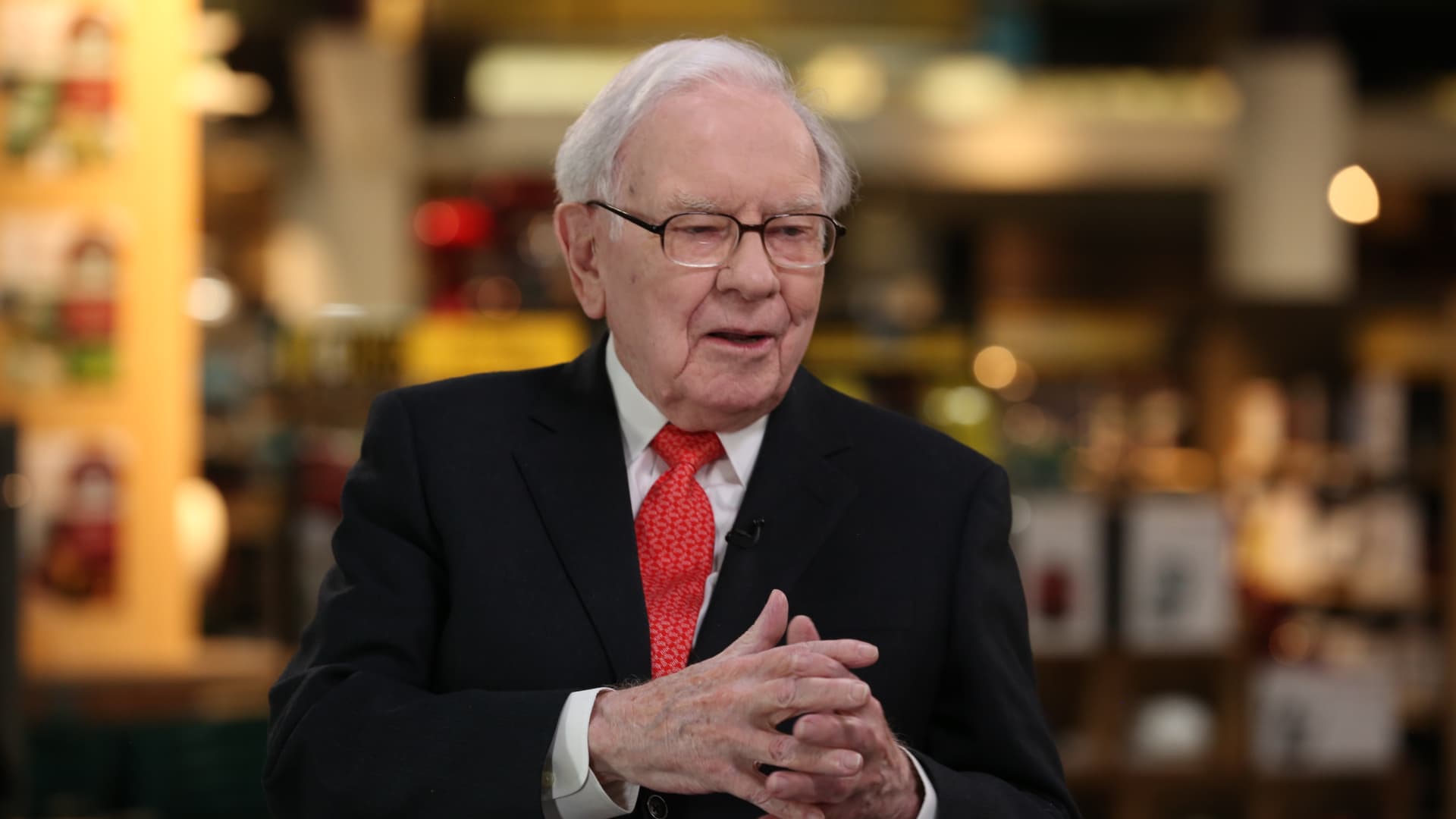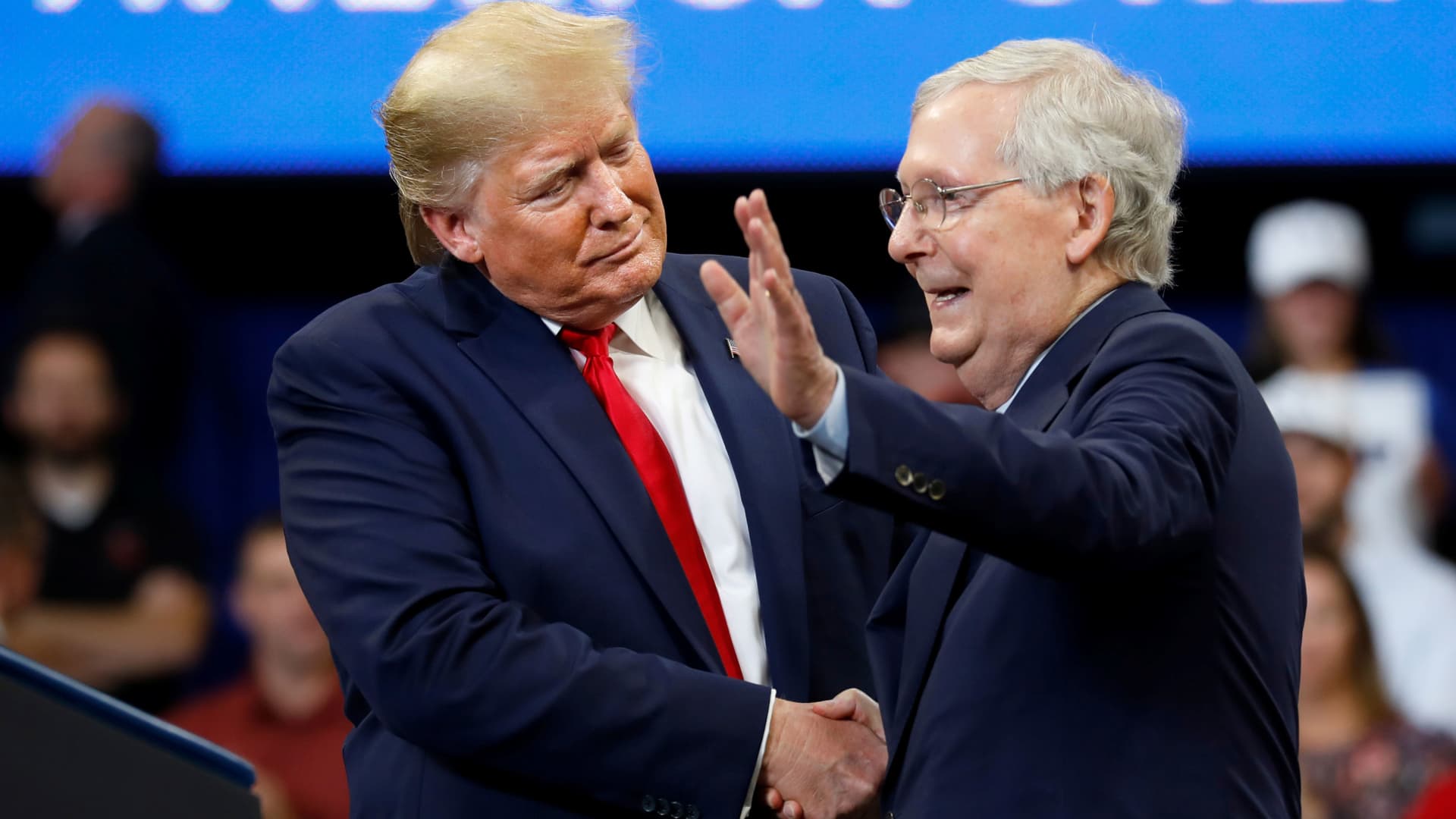US Markets
Wednesday, August 30th, 2023 9:34 am EDT

Warren Buffett took control of Berkshire Hathaway in 1965, and nearly six decades later as the “Oracle of Omaha” turned 93 on Wednesday, his conglomerate is stronger today than it’s ever been.
Berkshire shares have roared back to an all-time high on record operating profit, making it the biggest nontech company by market capitalization. Buffett has been extremely active in the past year, wooing his followers with a slew of astute moves from buying underappreciated Japanese stocks to navigating a surge in interest rates skillfully.
“He’s still at the top of his game. His mental acuity is sharp as ever,” said David Kass, a finance professor at the University of Maryland’s Robert H. Smith School of Business, who once held private lunches for his students and Buffett.
Loading chart…
Buffett stood out as one of the only few investors who managed to take advantage of higher rates, thanks to his mountain of cash — $147 billion at the end of June. His massive cash pile, which had been an area of concern at times, is now earning him a substantial return with short-term rates topping 5%.
Meanwhile, the legendary investor has been leaning on his favorite stock Apple, which has now taken up half of Berkshire’s equity portfolio after its 40% rally this year. Buffett likens the iPhone maker to a consumer products company and has said he is also attracted to its big buyback programs. His Apple bet has made Berkshire well over $100 billion since 2016.
‘Groundbreaking’ investment
Buffett also added to his stakes in five Japanese trading houses earlier this year, a bet that made Chamath Palihapitiya call him “the GOAT.” Buffett even traveled to Japan with his successor Greg Abel, his first time in more than 11 years, to meet with the heads at these firms to emphasize his support.
“It’s groundbreaking in the sense that I’m not aware of any prominent investor, hedge manager investing in Japan,” Kass said. “The country is in a deflationary environment for decades, and these companies were just sitting out there being ignored.”
Itochu, Marubeni, Mitsubishi, Mitsui and Sumitomo have a conglomerate structure just like Berkshire, and they have been stable dividend payers and earning growers. Social Capital’s Palihapitiya said what makes the trade so brilliant is how Buffett is able to hedge currency risk by selling Japanese debt and then pocket the difference between dividends from the investments and bond coupon payments he pays out.
A born leader
The last time shareholders heard from Buffett was at Berkshire’s annual meeting in May, where the investing icon held a six-hour marathon of Q&A, along with his longtime business partner Charlie Munger. They touched on every top-of-mind topic for investors from the banking crisis to recession risks and even crypto.
“His delivery and his intellectual clarity at the last shareholder meeting was amazing, at a time when most executives could be retired,” said Macrae Sykes, portfolio manager of the actively managed Gabelli Financial Services Opportunities ETF, which owns Berkshire as its biggest holding.
“Just his presence really demands operating accountability and alignment with the brand. I think that can’t be understated,” Sykes said.
Munger, vice chairman of Berkshire, turns 100 on New Year’s Day.
Unmatched track record
Buffett’s $800 billion conglomerate, which cuts across 40 industries and 60 companies, claims to have doubled the average annual return of the S&P 500 since Buffett first took control back in the LBJ years.
Berkshire’s compound annual gain was 19.8% from 1965 through 2022, compared with 9.9% for the S&P 500. That’s an overall total return of 3,787,464% vs. 24,708% for the benchmark. Many Berkshire shareholders were made millionaires by Buffett’s shrewd moves and patient value philosophy over the years.
“His preferred holding period is, in his words, forever. He still has this infinite time horizon, even at the age of 93,” Kass said.
This post has been syndicated from a third-party source. View the original article here.




